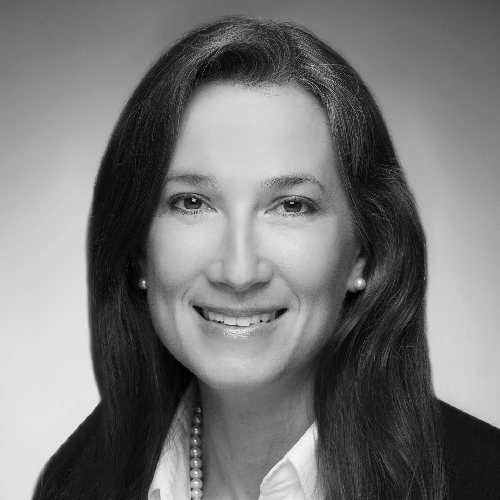For any public health system, managing resources appropriately is vital to ensuring that government funding is going to public service. For an organization like Harris Health, which operates three major hospitals and multiple clinics throughout the Harris County of Texas, it has an added significance. As the third most-populated county in the United States, Harris County is also home to many under- and uninsured constituents, making public health a vital source of care.
Omar Reid, who comes from a long line of family members who work in public service, chose to join the company largely because he believes in that mission. “We are the last resort for people who don’t have the means to go to private hospitals,” Reid says. “By utilizing my skills and talents here, it allows me to do things that are of personal value and also of value to the public at large.”
Since taking on his role of senior VP of human resources at Harris Health in 2016, Reid has made it his goal to maximize efficiency at the organization, something that he has both a talent and long history in doing. Reid joined Harris following a seven-year tenure as the head of HR for the City of Houston, where he had worked in part to improve some of the underfunded and under-resourced functions of its health system.
Prior to working in HR, Reid also spent twenty-six years in operational functions at UPS, which he cites as something that has been an asset in his work now. Although naturally skilled at working with people, understanding the operational side of business allows him to look at issues from that perspective, as well as enabling him to focus on data analytics. “Someone who came up through a traditional HR background might not focus on this as much as I do, but the numbers should drive the decisions that you make,” Reid points out. “You recognize how to look for opportunities for efficiencies.”
Some of the key work that he’s been doing involves improving employee engagement, as well as talent attraction and retention. “I try to spend some time not on transactional HR, but strategic and transformational HR,” Reid explains. In the past year, employee engagement has had a particular boost, thanks to his efforts. Participation in the annual employee survey jumped to 74 percent, up from 55 percent the previous year, which has enabled Reid to use information from the feedback to find ways to make improvements throughout the company. The feedback has ranged from looking at peer-to-peer relationships and ways that employees are relating to supervisors to analyzing whether they have the tools and resources to successfully complete their work.
“Sometimes, it’s major overhauls, and sometimes, it’s just simple resource realignment.”
To address each of these issues, Reid has put together a system-wide action plan from the director level to ensure that changes are set in motion. The campaign—titled This is What You Said, This is What You Did—includes both the large and small action plans that Harris has put in place to respond to areas where it might be lacking. That might mean relocating leadership positions to units away from the central office, where they might be better served, or ensuring that equipment is properly maintained in all of Harris Health’s facilities.
Reid’s goal is to improve employee retention by showing members that the directors are listening, and he has also focused on analyzing areas in the company with a high level of turnover and creating a plan to address those through compensation, job classifications, and leadership training. He additionally worked to create a position for a strategic project manager to take on some of the areas where Harris might need more focus. “Sometimes, it’s major overhauls, and sometimes, it’s just simple resource realignment that you might want to look at,” he says, citing a recent initiative he made to pare mandatory training time down from fifteen to two hours annually. “That many hours for nine thousand employees is a lot of time.” And by removing redundancies and focusing on where employees might only need a refresher, it frees up an enormous amount of time across the organization.
One of Reid’s major projects is building organizational development, something that was previously not in place at Harris. “If we can strengthen our organization in competencies throughout the different tiers of leadership, we’re going to be in a much better position a year from now,” Reid says. To do this, he’s focused on developing a succession-planning model as well as a leadership development program. He has also created a task force around organizational development to identify levels of leadership and find ways to use these in ways that improve the company’s culture. Analyzing employee strengths and putting in systems that draw from those can be invaluable, Reid says, noting that he also uses informal polling and focus groups to ensure that these programs are hitting the mark.
Reid is also focused on employee wellness, something that can also be key at a public health system, where the pay scale might not match private hospitals. Part of this push has been focused on physical health initiatives. After noticing that there was a high level of diabetes among employees, Reid partnered with an organization that uses technology to help monitor and improve health among diabetics. Others have focused on finance, building partnerships with financial education providers and programs and also boosting the ability for employees to engage with Harris’s employee assistance program provider. “We know that a major portion of employee stress is finance, so we want to be more visible from that perspective,” Reid says. “It’s an important part of looking at employees from a holistic perspective.”
To tackle each of these initiatives, Reid stresses the importance of building trust and relationships, and communicating with employees to understand their different perspectives. “Engaged employees lead to better outcomes,” he explains. “Their information is invaluable because it gives you areas of opportunity for improvement.”
Reid’s ultimate goal is to ensure that Harris Health is getting the most value out of the taxpayer money it receives, to do their best possible work for the constituents that the organization serves. At the end of the day, he feels proud that his work serves his community. In addition to being an avid cyclist outside work, Reid serves on multiple community boards across the city, including as chair of the career services advisory board at his alma mater Texas Southern University, an executive board member of Communities in Schools, and an executive committee member of the Texas International Personnel Management Association for Human Resources.
“I feel passionate that the people I work for, the taxpayers, and the employees of this department, are successful,” Reid says. “I think that will have a great impact on the future of Harris Health.”


